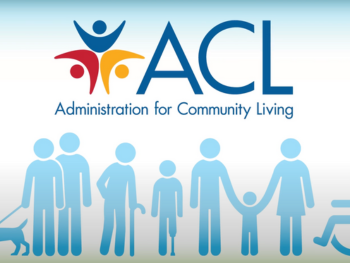Trump Abolishes The Office That Supports Many Seniors And People With Disabilities
By JCA on April 1, 2025

by Howard Gleckman, for his blog
The Trump Administration is abolishing the office that manages and coordinates most federal programs for older adults and younger people with disabilities who live at home. At the same time, it is restructuring two offices that provide independent evaluation and analysis of patient safety and long-term care.
The elimination of the Administration for Community Living (ACL) will be a major blow to older adults and people with disabilities. It manages most federal supports, other than Medicaid and subsidized housing, for older adults living in non-institutional settings.
A Broader Assault
“This is part of a bigger assault on older adults,” says Alison Barkoff, who led ACL during the Biden Administration. “ACL serves as a hub for programs that benefit older adults and people with disabilities.”
Many programs ACL oversees are funded through the Older Americans Act, the umbrella law that includes Meals on Wheels, adult day, area agencies on aging, falls and elder abuse prevention, and respite care.
ACL also manages the RAISE Act that aims to coordinate all federal programs that support family caregivers. That effort includes creation of a national strategy to support those families. (Full disclosure: I serve on an advisory committee to one of those initiatives).
Abolishing ACL won’t end funding for Older Americans Act programs or RAISE, though Congress could cut their budgets later this year as part of broader Republican effort to cut domestic spending.
The bigger immediate problem will be that those older adults and people with disabilities who are not on Medicaid will lose critical advocates within the federal government. Programs that assist these vulnerable populations may take a back seat as HHS sets priorities in the Trump Administration.
“Older adults and people with disabilities are losing their champions,” says one person familiar with ACL.
Aging And Disability
Breaking up the office will also end efforts to combine federal programs for older adults and younger people with disabilities. Historically, they operated separately, resulting in inefficient program duplication and deeply dividing advocacy groups.
In 2012, HHS Secretary Kathleen Sebelius created ACL by merging the Administration on Aging, the Office on Disability, and the Administration on Developmental Disabilities into a single unit. Her idea: Support people living independently at home, no matter the cause of their disability.
ACL did not fully resolve conflicts among the disability and aging communities but it helped limit them. And, as Barkoff told me, “It created synergies and efficiencies among federal programs.”